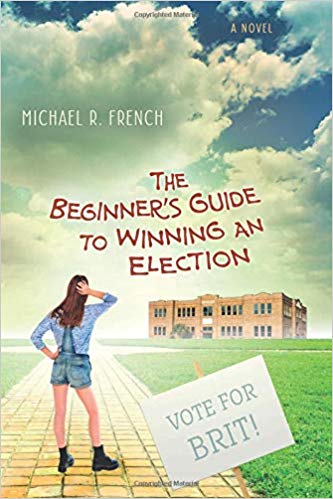Book Summary:
In 2025, the “youthification” of democracy has inspired younger candidates to challenge the ineffective and dishonest gray-hairs in Congress. Running for student body president at an Indiana high school in 2025, political novice Brit Kitridge takes on incumbent Matthew Boltanski, who, with help from a mystery backer, already has his eyes set on Washington. Brit gains courage and insights from a wise history teacher on how to win, but ultimately finds a maze of deceit and corruption in her school. Is exposing the truth enough to win the election?
Buy the book – Amazon Link – https://amzn.to/2E174X4
1. What book or author inspired you to start writing?
J.D. Salinger—Catcher in the Rye.
2. Does your family support your writing career? Were any of them instrumental in the creation process?
Well, sometimes, and they were supportive. But in the end writing was a solitary sport for me. Good thing I never kept score or I would have given up.
3. How important is reading other authors to your own writing?
Very. I like seeing how they solve universal character and plot challenges. Writing style and dialog are also worth checking to out. I admire writers who are great with dialog.
4. What’s your favorite under the radar novel?
If you mean novels that don’t have a famous name attached, I like anything by Marc Talbert and Fred Dillen.
5. How critical are you of your own work compared to reading other authors?
Very critical in the sense that I’m always trying to get better. Perfection is never achievable but it helps to pretend that it is.
6. What is your favorite time of day, season, and place to write? Why?
I write every day, even if it’s only a couple of sentences that I later disregard. I prefer mornings after a good night’s sleep. I take my laptop everywhere in case I find myself with spare time.
7. What is the most unusual or surprising element of your writing routine?
I’m not sure it’s unusual or surprising, but daily writing is like fighting a war with your innate laziness or fear of failure. You can’t win or get better if you don’t constantly struggle. I think that’s true for any worthy pursuit.
8. Do you start out with a concrete plot or let an idea or ideas lead you?
Never anything too concrete. A character or two and a situation they are in is enough for a start. Writing would get boring if you knew what you had to write everyday. Improvisation and self-discovery are the joys that keep me going.
9. How much did real world people influence your characters and do you feel a debt to them?
All my characters are amalgams of real people. Not always intentionally; sometimes they alchemize in my imagination. I feel a debt to everyone I have ever met or read about.
10. How did you balance writing your story your way and giving readers what they want?
I did five or six significant drafts of beginner’s guide. Giving the readers what they want is not authentic if it’s not what you want too. In the end you compromise between the two, but as little as possible.
11. What did you edit out of the book?
I don’t clearly remember now. Adding, eliminating, rearranging plot and characters goes on from start to finish. In beginner’s guide, I edited out everything—word, sentence, and paragraph—that I thought was gratuitous. The final draft barely resembled the first.
12. Do you read, or plan on reading, reviews of this book? If so, how do you deal with the good and the bad ones?
I read them all eventually. The ones that have the most impact are those that contain insights into the story that I never thought of. It just goes to show how powerful your subconscious is.

